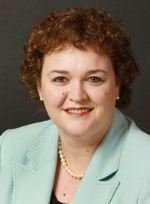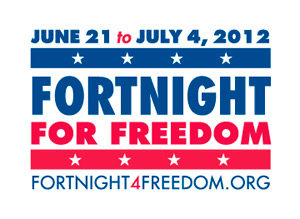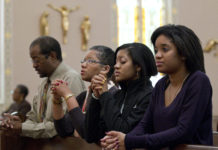Part one of this article elaborated on how attacks to religious freedom take many forms, sometimes violent sometimes subtle. We also saw how our Founding Fathers sought to achieve a delicate balance by protecting certain freedoms as foundational and how religious believers are part of American civil society. In part two, we will see examples of a gradual erosion of religious liberties in this country that have led religious people of many faiths to raise their voice against injustice and discrimination.
The erosion of religious liberty in this country has been a decades-old process spanning Democrat and Republican administrations. It is not just a current Administration issue, although now we have reached a critical point. A point of no return, which if left unaddressed would fundamentally alter our understanding of religious liberty and the fragile balance created by the framers of the U.S. Constitution.
Three recent examples show how attacks to religious liberty can come from any front. For example, several states have recently passed laws to forbid what the government deems “harboring” of undocumented immigrants—and what the Church deems Christian charity and pastoral care. Under some of these, providing these immigrants the sacraments, encouraging them to attend Mass, religious education programs, Scripture studies, or counseling of any kind would be illegal. Alabama is perhaps the most egregious case, and the Catholic bishops in cooperation with the Episcopal and Methodist bishops of the State filed suit against the law.

“It is with sadness that we brought this legal action, but with a deep sense that we, as people of faith, have no choice but to defend the right to the free exercise of religion granted to us as citizens of Alabama,” said Bishop Thomas Rodi of Mobile, explaining the action.
Also, despite the Migration and Refugee Services (MRS) of the U.S. Conference of Catholic Bishops’ excellent record in administering contract services for victims of human trafficking, the federal government changed its contract specifications to require that MRS provide or refer for contraceptive and abortion services, in violation of Catholic teaching.
“Religious institutions should not be disqualified from a government contract based on religious belief, and they do not somehow lose their religious identity or liberty upon entering such contracts,” say the bishops in Our First, Most Cherished Liberty, a March 2012 statement on religious liberty.
A third example is the HHS mandate that employers provide contraception, sterilization, and abortion-inducing drugs for women. In an unprecedented way, the federal government will force religious institutions to participate in what runs contrary to their own moral teaching. “This is not a matter of whether contraception may be prohibited by the government. This is not even a matter of whether contraception may be supported by the government. Instead, it is a matter of whether religious people and institutions may be forced by the government to provide coverage for contraception or sterilization, even if that violates their religious beliefs,” said Archbishop William Lori of Baltimore in testimony before Congress.
Examples apart, Catholics are not the only ones raising concern over the erosion of religious liberty. In a statement regarding the Administration’s contraception mandate, the Union of Orthodox Jewish Congregations of America said, “Most troubling is the Administration’s underlying rationale for its decision, which appears to be a view that if a religious entity is not insular, but engaged in broader society, it loses its religious character and liberties.”
Separation of Church and State is an important element of democracy. Whether it is to run a program or to raise its voice for civil liberties, religions and churches have a place in civil discourse. As Rev. Martin Luther King Jr. put it, “the church is neither the master nor the servant of the state, but its conscience, guide and critic.”
And echoing a March 2012 Evangelical and Catholics Together letter “In Defense of Religious Freedom,” the Catholic bishops point out in a similar statement that “as Christians of various traditions we object to a “naked public square” stripped of religious arguments and religious believers. We do not seek a “sacred square” either, which gives special privileges and benefits to religious citizens. Rather we seek a civil public square where all citizens cam make their contributions to the common good.”
We shouldn’t be willing to sacrifice a foundational pillar of our democracy to ideology of any kind. The Fortnight for Freedom, July 21-July 4, called by the U.S. Conference of Catholic Bishops, is an opportunity to learn more about religious liberty and why religious bodies of every kind are raising their voices about it.
— By Mar Muñoz-Visoso, executive director of the Secretariat of Cultural Diversity in the Church at the United States Conference of Catholic Bishops.





![[VIDEO] Make Sunday feel like Sunday again](https://www.catholicsun.org/wp-content/uploads/2021/04/2021-YOUTUBE-BISHOP-MESSAGE-THUMBNAIL-ENGLISH-218x150.png)

